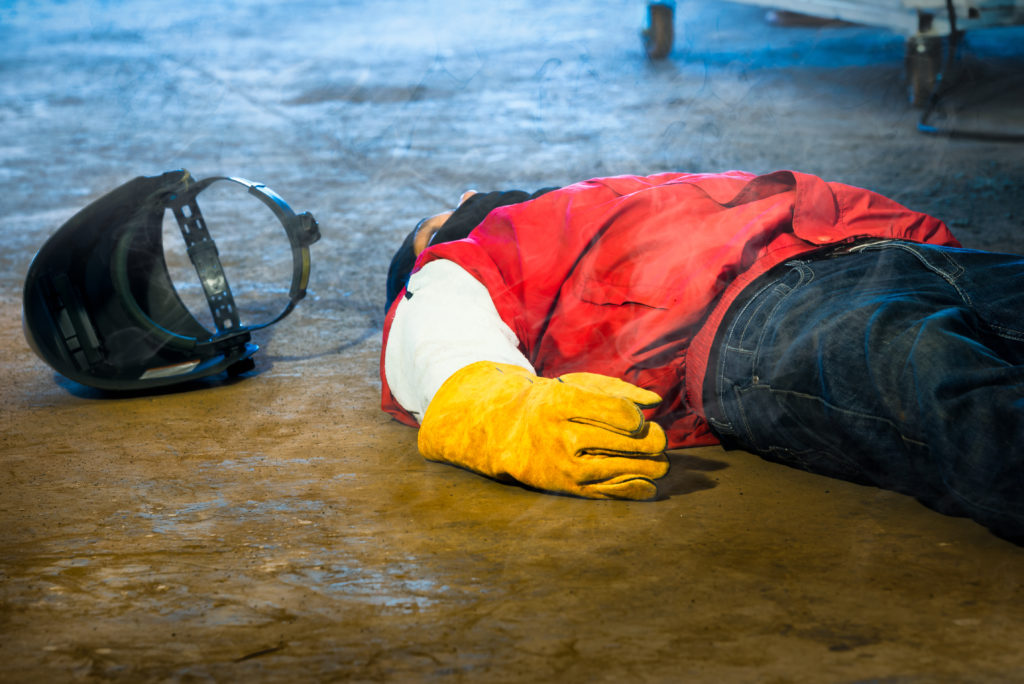Welding has developed a reputation as one of the most dangerous jobs out there. Hundreds of thousands of welders get injured on the job each year—some workers even die from their injuries sustained during the welding process. According to the United States Bureau of Labor Statistics, 50 fatal welding accidents occurred in 2019.
If you have been injured in a welding accident, you may be entitled to compensation. After reading more about these types of accidents below, make sure you call Halperin & Halperin, P.C. for your free consultation.
How and Why Do Welding Accidents Occur?
Welders face numerous workplace hazards. That is why the Occupational Safety and Health Administration (OSHA) sets so many safety regulations for this trade. For example, the law requires protective equipment like goggles, masks, gloves, and safety shoes to lower welders’ risk of serious injury.
That said, accidents can still occur at any stage of the welding process. Particular workplace environments tend to cause more welding accidents, especially in the construction industry. A welder in this field may have to work in confined spaces, outdoors in dangerous weather, or on a scaffold several feet off the ground.
In any event, managers must follow OSHA safety protocols as well as thoroughly explain the dangers of each welding job to their workers.
Types of Welding Injuries
While not an exhaustive list, the following types of injuries account for most welding accidents:
Eye Injuries
Exposure to excessive heat, hot drops of metal, bright light, or strong ultraviolet (UV) rays can all injure the eyes. As a result of the damage, some welders end up with vision loss, cataracts, and even potential blindness.
Welder’s Flash
Also known as arc eye, welder’s flash occurs when overexposure to UV and infrared radiation burns the cornea. Sometimes, it may take a welder hours to realize that they have sustained an arc eye burn. If you think you may have experienced welder’s flash, monitor yourself for the following symptoms:
- Mild to severe eye pain
- Light sensitivity
- Watery eyes
- Red eyes
- Feeling like you have something gritty in the eyes
Without prompt medical attention, a welder’s flash can cause an infection that may eventually result in vision loss.
Fire and Burn Injuries
Due to the extreme heat of the welding arc, it is no surprise that welders risk getting burns and fire-related injuries in the workplace. In particular, working with hot, molten metal can cause severe burns in the event of an accident. The arc itself can also flare up, burning the welder directly. Chemical burns may occur too.
If the welder has hazardous fumes and flammable chemicals or gases nearby, a fire can break out or an explosion can occur, resulting in serious injury or death. Electrical sparks can also cause a fire.
Prolonged exposure to UV radiation can also lead to ailments such as skin cancer down the road.
Injuries from Fumes
Every day, welders risk exposure to toxic fumes, including metal oxide compounds and other dangerous gases. In the short term, inhaling these toxic fumes can cause lightheadedness and fainting but over time can lead to the following symptoms:
- Respiratory illnesses
- Nervous system disorders
- Impaired speech
- Tremors
- Psychological issues
- Loss of balance, coordination, and basic motor skills
- Various cancers
Welding-Related Parkinsonism
Recently, researchers have begun studying what happens when welders inhale too much manganese smoke from hot welding rods. Studies have linked this hazard to Parkinsonism, which encompasses disorders that cause symptoms similar to those seen in Parkinson’s disease.
Some of these symptoms include:
- Rigidity in the arms and legs
- Reduced facial expression
- Speech problems
Electrical Shock Injuries
When two metal parts with a voltage touch, welders can experience an electrical shock. Secondary voltage shock also presents a risk. In this scenario, the welder touches a part of the electrical circuit and part of the metal at the same time, resulting in an electrical shock.
Hearing Loss
During the day, welders subject their ears to dangerous noise levels, often over 85 decibels. Regular exposure to 70 decibels or higher can eventually cause hearing loss, whereas noise above 120 decibels can cause immediate damage.
Ear damage can also occur when flying debris in the workplace penetrates welders’ earl canals.
Miscellaneous Injuries
In addition to all of the injuries described above, welding can cause:
- Brain damage
- Musculoskeletal injuries
- Injuries from working in awkward positions or confined spaces
Legal Options for Welding Accident Victims
If you have been injured during a welding job, you may have legal recourse. Consider the following options:
Personal Injury Lawsuits
When you notify your employer of your welding injury, the law requires the employer to properly disclose it to OSHA within 24 hours (within 8 hours for fatalities). After documentation, the court can determine fault by deciding which parties, if any, breached their duty of care toward the injured welder. For instance, an employer must follow OSHA regulations for their workers’ safety.
In addition to proving fault, you must prove that you incurred damages to receive compensation. Some common types of damages include:
- Medical costs
- Lost wages
- Emotional damages
- Wrongful death
Workers’ Compensation Claims
If you’re injured on the job, you can file a claim for workers’ compensation. While there may be other responsible entities that could be subject to a lawsuit, the law limits your recourse with a direct employer to a workers’ comp claim.
Other Types of Lawsuits
Depending on the details of your accident, you may be able to obtain compensation through other avenues of the law, including defective products or wrongful death lawsuits.
Contact Us
If you or a loved one has been injured in a welding-related accident, contact our Manhattan law office for legal advice. Our firm has over 40 years of experience in personal injury law, and our attorneys at Halperin & Halperin, P.C. strive to treat every client like family.
Remember, New York state law sets a statute of limitations for filing welding injury claims, so you need to act fast. Give us a call to start the legal process today.
Call the Halperin & Halperin, P.C. office in New York, NY, at (212) 935-2600 today for your free consultation.

